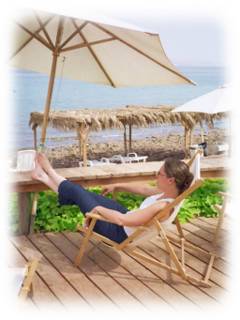How do the Choices we make AFFECT OTHERS?
On June 30, 2005 the US Senate passed a free trade agreement with five
Central American countries and the Dominican Republic (called
DR-CAFTA). The
one remaining hurdle to the agreement¹s implementation is a similar
vote in
the US House by July 29 and in two or three of the other participating
countries.
InnerCHANGE has been working with Salvadorans, Guatemalans and
Hondurans for
many years in the inner cities of Los Angeles and San Francisco. Lord
willing, we will see new teams launched into Central America in the
coming
years. We have seen the fruit of unchecked economic policies and
practices
that leave small farmers unable to compete with large agro-business,
forcing
them to abandon their lands for either an urban slum or a piece of the
American pie in neighborhoods that we know all too well in Los Angeles
and
San Francisco. The free movement of factories south of our border is
another
huge problem for many on both sides of the border. One of our own
missionaries, Celida Peñate, once worked in a factory on the Mexico/US
border and knows first hand that the wages do not feed a family and
worse
yet, she knows the lack of recourse the workers face when they attempt
to
organize for basic labor rights.
Both the process and the product of the current free trade agreement
for
Central America are badly flawed. DR-CAFTA was not negotiated within a
framework of democratic accountability and did not include broad-based
citizen participation. The text was only made public after the
negotiations
were completed. There were no social reviews or impact assessments by
independent bodies. This process has engendered mistrust and even
social
unrest in Central America. The product is flawed, too. Instead of
engendering democracy, it actually gives greater decision-making powers
to
closed tribunals than to the participating governments. Instead of
bringing
prosperity to these impoverished nations, CAFTA will bankrupt small
farmers
and deprive the people of Central America and Dominican Republic of the
ability to grow their own food. In 1991, Honduras reduced its tariff
levels
on rice imports because of a drought. In just a few months, the amount
of
rice that came into the country was more than annual consumption. This
was
devastating to Honduran rice producers when new harvests arrived.
Honduran
rice production was reduced by 86 percent in the ten years followed,
with
the number of rice producers falling from 25,000 to 2,000 because they
could
not compete with the influx of rice.
Please pray with us at this critical time, before the final vote in
Congress. Pray for congressmen with ears to hear the voices of the
small
farmers and factory workers on both sides of the border who are
speaking up
for trade that is fair, not just free. Pray for a better, fairer
alternative
to DR-CAFTA, a trade agreement that results from a truly democratic,
broad-based process that honors all members of society.
For those who want to do more, www.stopcafta.org offers a quick way for
individuals to write their congress members. For those wanting more
information on DR-CAFTA (and FTAA), you can check out these websites:
www.educationforjustice.org
www.stopcafta.org
www.ustr.gov/new/fta/cafta/text/index.htm
InnerCHANGE commitment to service:
By prayer, fasting and the leading of the Holy Spirit, I will wage
peaceful
war against all that is contrary to God and the establishment of his
kingdom.


0 Comments:
Post a Comment
<< Home